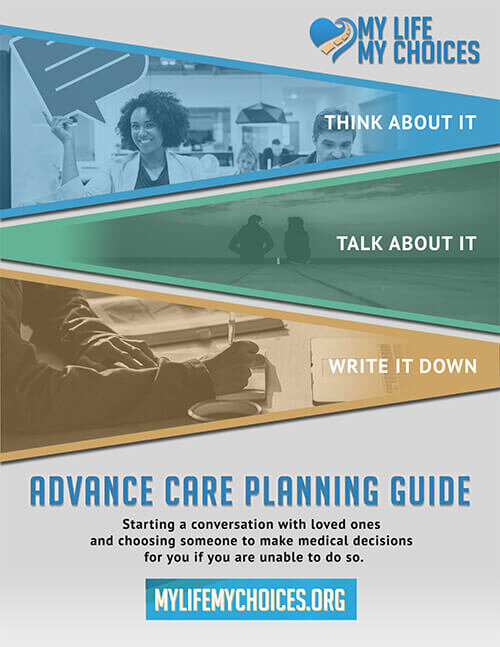
South Carolina Healthcare Decisions Month Toolkit
Talk About It. It’s More Than A Document! April is South Carolina Healthcare Decisions Month! This month exists to inspire, educate, and empower YOU to take control of YOUR future health care choices.
Below are some free resources to help you implement Healthcare Decisions Month activities in your community and in your organization.
Suggested Activities
These activities can be conducted during South Carolina Healthcare Decisions Month or can extend beyond the campaign and be carried out throughout the year.
Sign up as an active participant in South Carolina Healthcare Decisions Month. Add your name today!
Email our call to action to 5 friends and share it on social media.
Lead by example and encourage others to do the same. Read more »
Use this Toolkit and the resources and templates below. Publicize local and statewide activities in your organization’s newsletter and/or other communication outlets.
Download and fill out our “What Matters Most” ACP bubble map!
Support the My Life My Choices media campaign by using the South Carolina Healthcare Decisions Month Media Guide.
Take advantage of our training resources to educate your staff. Read more »
Consider adding My Life My Choices training modules to pre-conference activities. Contact us at info@mylifemychoices.org to learn more about trainings in your area.
Integrate discussions about advance care planning in upcoming meetings and events in April. See the best practices below.
Consider an employee incentive program that helps employees decrease health insurance by completing the advance care planning process. The South Carolina Hospital Association’s “Working Well” programs are a great model.
Best Practices
Here are some examples of how organizations participate in Healthcare Decisions Month:
Tools & Resources
We have created a few resources (how-to guides, email templates, sample letters to the editor, and social media posts/graphics) to help you use South Carolina Healthcare Decisions Month in your own organization and community.
Resources for Hosting Events
Download and print: ACP Guide for Starting a Conversation with Loved Ones
Our guide: How to Lead by Example
The Conversation Project: Film Screenings to Engage Communities
End Game: END GAME Screening Inquiry
Being Mortal: Community Screening and Discussion Toolkit
The Farewell: Cultures Role in How We Approach End of Life
Extremis:
Note: Many of these movies focus on serious illness or end of life. Some have supporting discussion guides, but we suggest facilitated discussion following the screenings.
Resources for Healthcare Providers
Crosswalk of South Carolina Advance Care Planning Documents and Laws
Our guide: Educate and Train Staff and Employees
Advance Care Planning Initiative: #ISaidWhatIWant
End-of-Life Care Conversations: Medicare Reimbursement FAQs
Sample Physician’s Letter to Patients Regarding Advance Care Planning
Best Practice: Agape Foundation Shows How to Implement ACP Across SC
Best Practice: BCBS of S.C. Expands ‘Rewarding Excellence’ Program To Include ACP
Resources for Faith-Based & Community Organizations
Our guide: Engage the Community Where They Live, Work and Pray
Bethel AME Church: Planning Ahead Program
Fact Sheet: How to Host Your Own Conversation Sabbath
Brochure: Isn’t It Time We Talked?
Media Campaign Resources
Provide a link on your organizational website to the My Life My Choices website.
Download and use our South Carolina Healthcare Decisions Month Media Guide
Submit a Letter to the Editor in your local paper [View Sample LTE]
Share our Call to Action article through email and on social media. Be sure to include the #DecisionsMonth hashtag.
Key Messages and Usable Phrases
It’s your life. Make your health care choices known.
Advance care planning is more than just a document. It’s a process of thinking about your personal goals of care preferences, talking about care preferences with loved ones, and writing down your preferences in an advance directive that you share with loved ones and your doctors.
Information is power. We can help answer tomorrow’s questions today by sharing our values and preferences with the people who matter most. We may not be able to predict every choice we’ll have to make, but we can give those we love the guiding principles to confidently make decisions for us.
If we don’t say it, they won’t know. Our caregivers may need to make decisions for us, whether we’ve told them what we want or not. We can’t simply assume they know.
You know you. We’re not all doctors, but we’re experts on what’s right for us and our lives. When we share our values, preferences and wishes with our doctors, we’re part of the team that helps us get the right care for us.
Having a say means getting the most out of every day. Serious illness care can involve choices that impact our quality of life. The more we speak up, the better care can be, and the more we’ll have the chance to receive the kind of care that works for us.
What to Avoid
Don’t just focus on the document, because it’s more about the conversation.
Don’t focus exclusively on serious illness or end-of-life. Advance care planning is needed any time when a person cannot make or communicate his or her own health care decisions.
Don’t use phrases, such as ‘honest conversation’ which may infer judgement, instead use ‘open conversation.’
Don’t rush to ‘get it done’. Advance care planning is personal and may require multiple conversations.









